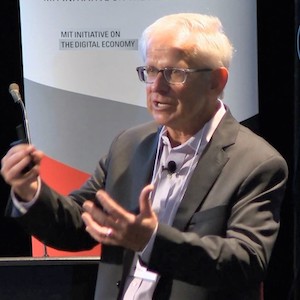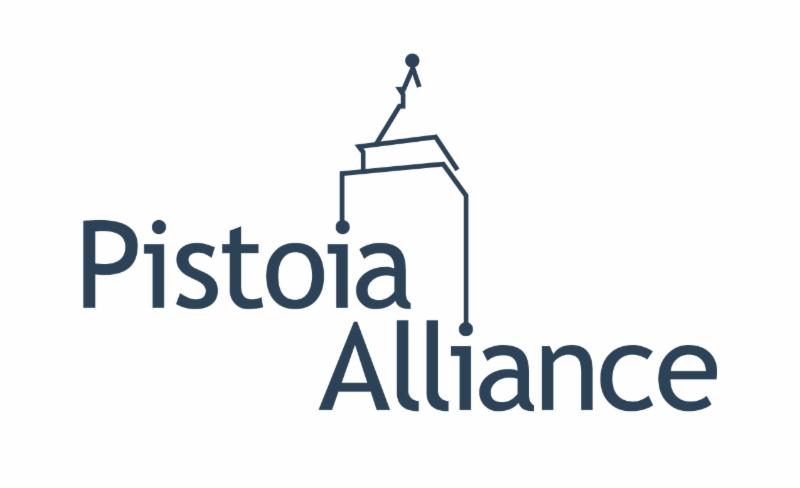 Spending on entitlement programs like Medicare and Medicaid consumes some two-thirds of all federal spending, but new research from the University of Notre Dame shows that information technology investments in health care lead to significant spending reductions — potentially in the billions of dollars...
Spending on entitlement programs like Medicare and Medicaid consumes some two-thirds of all federal spending, but new research from the University of Notre Dame shows that information technology investments in health care lead to significant spending reductions — potentially in the billions of dollars...
data sharing
See the following -
SMART On The Agenda At AMIA 2012
The AMIA 2012 Annual Symposium begins today in Chicago, where it is currently “Informatics Week” as declared by Mayor Rahm Emanuel. Read More »
- Login to post comments
Standards and Open Source Make Advances in Apps and Data Exchange for Health
I try to be optimistic about health care, and I managed to move my mood meter in that direction last month after talking about advances in data sharing, standards, and interoperability with a few people involved in the open FHIR standard: Grahame Grieve from the Core FHIR Development Team, David Hay from the FHIR Management Group, and Josh Mandel, a research scientist working on the open-source SMART Platform. Read More »
- Login to post comments
Strengthening Protection of Patient Medical Data
Americans seeking medical care expect a certain level of privacy. Indeed, the need for patient privacy is a principle dating back to antiquity, and is codified in U.S. law, most notably the Privacy Rule of the 1996 Health Insurance Portability and Accountability Act (HIPAA), which establishes standards that work toward protecting patient health information. But the world of information is rapidly changing, and in this environment, U.S. rules fall precariously short in protecting our medical data...
- Login to post comments
Study Shows Electronic Health Information Exchanges Could Cut Billions in Medicare Spending
- Login to post comments
Suddenly It’s All About The APIs
[...Turns] out I’ve got a number of events coming up where I’m on tap to discuss the emergence of “APIs” in Health and what it might mean for interoperability and adoption. The first of these is tomorrow at ITdotHealth at Harvard; great to follow-up the meeting that kicked off so much of the “Health Internet” movement back in 2009! Read More »
- Login to post comments
Superbugs Will Kill 10 Million a Year by 2050
 Healthcare experts have long warned drug-resistant superbugs are a "looming global threat," but left unchecked, they may kill someone every three seconds by 2050, according to a new report. The Review on Antimicrobial Resistance began in 2014 and in the meantime, antibiotic-resistant infections have already wrought havoc, causing several outbreaks linked to contaminated scopes and proving potentially more deadly than cancer, according to experts...
Healthcare experts have long warned drug-resistant superbugs are a "looming global threat," but left unchecked, they may kill someone every three seconds by 2050, according to a new report. The Review on Antimicrobial Resistance began in 2014 and in the meantime, antibiotic-resistant infections have already wrought havoc, causing several outbreaks linked to contaminated scopes and proving potentially more deadly than cancer, according to experts...
- Login to post comments
Syapse Joins Free The Data! Initiative and Provides Software To Power Participant-centric Hereditary Gene Mutation Data
Syapse, the leader in software for bringing omics into routine medical use, announced that it has joined the Free the Data! initiative. [...] Read More »
- Login to post comments
The 'Internet of Things' Is Sending Us Back to the Middle Ages
 Internet-enabled devices are so common, and so vulnerable, that hackers recently broke into a casino through its fish tank. The tank had internet-connected sensors measuring its temperature and cleanliness. The hackers got into the fish tank’s sensors and then to the computer used to control them, and from there to other parts of the casino’s network. The intruders were able to copy 10 gigabytes of data to somewhere in Finland. By gazing into this fish tank, we can see the problem with “internet of things” devices: We don’t really control them. And it’s not always clear who does – though often software designers and advertisers are involved...
Internet-enabled devices are so common, and so vulnerable, that hackers recently broke into a casino through its fish tank. The tank had internet-connected sensors measuring its temperature and cleanliness. The hackers got into the fish tank’s sensors and then to the computer used to control them, and from there to other parts of the casino’s network. The intruders were able to copy 10 gigabytes of data to somewhere in Finland. By gazing into this fish tank, we can see the problem with “internet of things” devices: We don’t really control them. And it’s not always clear who does – though often software designers and advertisers are involved...
- Login to post comments
The Lonely Universe Of Autoimmune Diseases
How would you feel if, after years of searching for a diagnosis you finally found out you have an autoimmune disease, and then you realize that your doctors will have to experiment on you to find the right treatment? That’s the state of the art today in autoimmune diseases like Crohn’s, lupus, and MS.
- Login to post comments
The New Rules of Healthcare Platforms (Part 4): APIs Enable the Platforming of Healthcare
 Recent regulations have mandated the use of HL7 FHIR APIs (application programming interfaces) to share health data. The regs apply to healthcare providers, payers, and technology developers who participate in federal programs. Many incumbent healthcare organizations are viewing these mandates as a compliance burden. That’s short-sighted. We recommend a more opportunistic POV. APIs facilitate the sharing of health data across different devices and platforms. By adopting APIs, healthcare organizations can transform themselves from traditional service providers into powerful platforms that can connect patients, providers, and other stakeholders in new and innovative ways.
Recent regulations have mandated the use of HL7 FHIR APIs (application programming interfaces) to share health data. The regs apply to healthcare providers, payers, and technology developers who participate in federal programs. Many incumbent healthcare organizations are viewing these mandates as a compliance burden. That’s short-sighted. We recommend a more opportunistic POV. APIs facilitate the sharing of health data across different devices and platforms. By adopting APIs, healthcare organizations can transform themselves from traditional service providers into powerful platforms that can connect patients, providers, and other stakeholders in new and innovative ways.
- Login to post comments
The New York Stem Cell Foundation Research Institute Announces Largest-ever Open Source Stem Cell Repository
The New York Stem Cell Foundation (NYSCF) Research Institute, through the launch of its repository in 2015, will provide for the first time the largest-ever number of stem cell lines available to the scientific research community. Read More »
- Login to post comments
The Next Generation: A Comprehensive Electronic Health Record
The Network for Public Health Law is holding their 2012 Public Health Law conference this week in Atlanta, focusing on the Practical Approaches to Critical Challenges in Public Health Law, and I have been in attendance...But what struck me, was how little we really take time to think about the impact the work we are doing has upon our individual lives and those of our families. Read More »
- Login to post comments
The Pistoia Alliance Calls on the Life Sciences to Support Greater Collaboration to Overcome Technology Challenges
 The Pistoia Alliance, a global, not for profit alliance that works to lower barriers to innovation in life sciences R&D, is calling upon the industry to improve collaborative efforts to use patient data to its full effect. In a series of keynote speeches delivered at The Pistoia Alliance’s annual member conference in London, speakers from Amgen, Accenture and AstraZeneca, discussed the need to more closely connect outcomes data with the R&D process – to help pharmaceutical companies focus their research efforts and deliver real benefits to patients. Building machine learning and deep learning systems, and incorporating data from therapeutic interventions or diagnostics into R&D is technologically challenging, and would benefit significantly from industry-wide pre-competitive collaboration...
The Pistoia Alliance, a global, not for profit alliance that works to lower barriers to innovation in life sciences R&D, is calling upon the industry to improve collaborative efforts to use patient data to its full effect. In a series of keynote speeches delivered at The Pistoia Alliance’s annual member conference in London, speakers from Amgen, Accenture and AstraZeneca, discussed the need to more closely connect outcomes data with the R&D process – to help pharmaceutical companies focus their research efforts and deliver real benefits to patients. Building machine learning and deep learning systems, and incorporating data from therapeutic interventions or diagnostics into R&D is technologically challenging, and would benefit significantly from industry-wide pre-competitive collaboration...
- Login to post comments
The President’s Precision Medicine Initiative – The First Annual Check-Up
Watching President Obama’s recent 2016 State of the Union Address reminded me that one year has passed since the President announced a new “precision” or personalized medicine initiative to advance personalized, effective therapies for the American public. It was during his 2015 State of the Union Address that the President stated:[1]
“[T]onight, I’m launching a new Precision Medicine Initiative to bring us closer to curing diseases like cancer and diabetes, and to give all of us access to the personalized information we need to keep ourselves and our families healthier. We can do this.”...
- Login to post comments
The Sad State of Uncoordinated Care in the U.S.
 Care coordination deficiencies in the U.S. healthcare system can be so frustrating that they are (almost) comical. That is a message patient activist Jessica Jacobs aired as she advocated for healthcare operational efficiency improvements and care coordination. Until her death last month, Jacobs blogged and used social media to draw attention to America’s problems with disjointed healthcare. She did this by sharing stories of the numerous system failures she experienced firsthand as a patient with complex care needs...
Care coordination deficiencies in the U.S. healthcare system can be so frustrating that they are (almost) comical. That is a message patient activist Jessica Jacobs aired as she advocated for healthcare operational efficiency improvements and care coordination. Until her death last month, Jacobs blogged and used social media to draw attention to America’s problems with disjointed healthcare. She did this by sharing stories of the numerous system failures she experienced firsthand as a patient with complex care needs...
- Login to post comments